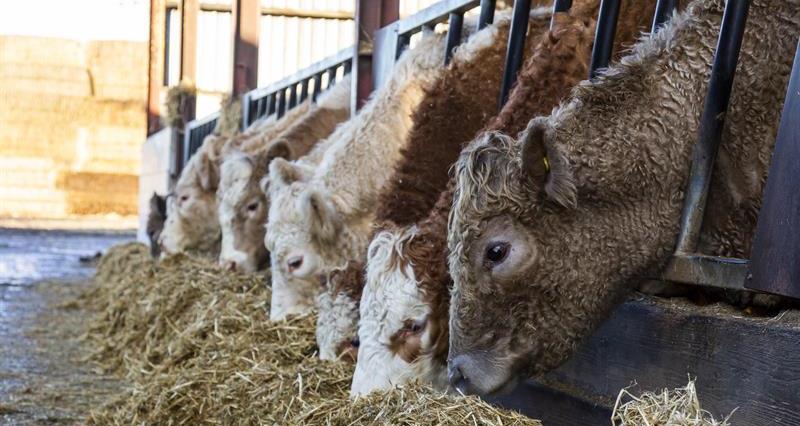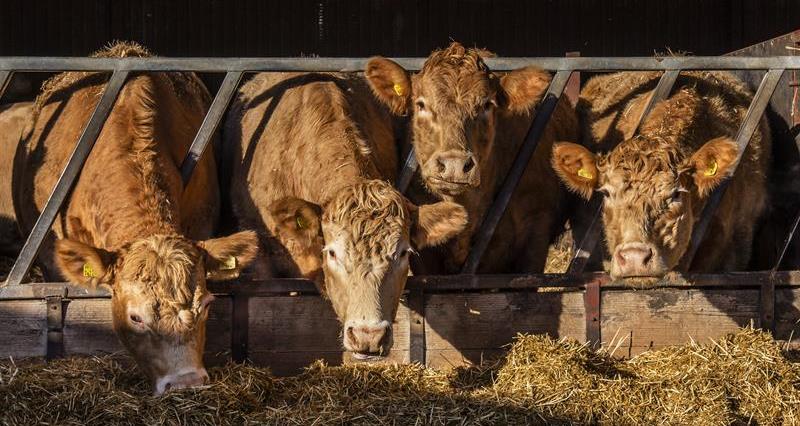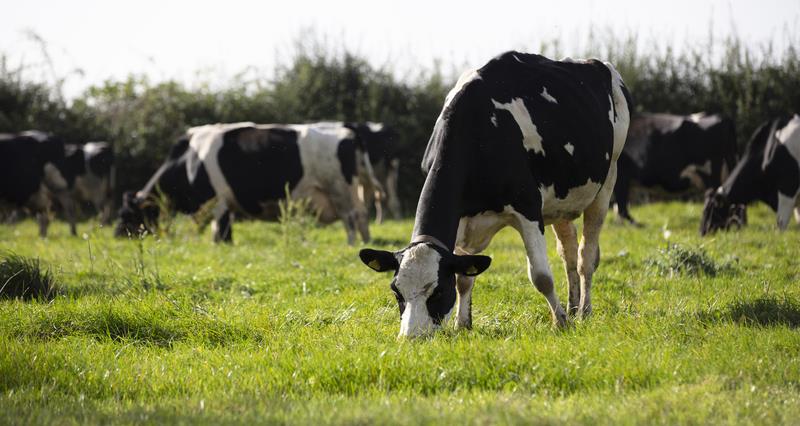In October 2023, Defra renewed its commitment to reducing methane emissions in livestock through plans to encourage the use of methane reducing feed products in England.
Since its inception, the NFU has played an active role in a government-led roundtable focused on methane inhibitors, recognising the role they could play in supporting sustainable food supply chains and helping industry, and the UK, to meet environmental targets.
The NFU has been very clear that any new product or innovation needs to work in real-life situations, suit a range of farm systems and be incentivised alongside a range of other GHG emission-reducing techniques, such as genetics, efficiency improvements and new technologies.
We have also stressed the need for robust risk assessments to consider the impact of each product on animal health and welfare, food safety and the wider environment.
Bovaer® – is it safe?
Currently, Bovaer® is the only methane suppressing feed additive approved for use in the UK. Bovaer® claims to reduce enteric methane emissions from cows on average by 27%.
Bovaer® has been approved and is considered safe by the FSA (Food Standards Agency) in the UK, the EFSA in the EU and a number of other authorities in 70 countries across the world including Australia, Canada, North America and Brazil.
Regulatory and scientific trials, which have taken place over the last 15 years have demonstrated that Bovaer® does not pose a risk to health for consumers or animals. Over the past 3 years Bovaer® has been used by thousands of farmers in more than 25 countries.
When used as recommended, Bovaer® is designed to break down in the cows’ digestive systems and quickly decompose into naturally occurring compounds already present in the rumen. As such, the product is not present in the milk or meat from an animal and there is no exposure to consumers.
A spokesperson from the FSA said: “Milk from cows given Bovaer, a feed additive used to reduce methane emissions, is safe to drink. Bovaer has undergone rigorous safety assessments and is approved for use in Great Britain.”
“Only by exhausting a robust certification process, with health approvals and extensive trials, should any new feed product be introduced into our cows’ diets.”
NFU Dairy Board chair Paul Tompkins
Trials aid evidence
In 2024, news that trials of products such as Bovaer® were taking place in the UK sparked debate on social media and beyond. The trials between a large dairy processor and a number of retailers aimed to understand if enteric methane emissions from cows could be reduced through the feeding of a methane suppressing food supplement.
Speaking at the time, NFU Dairy Board Chair Paul Tompkins stressed the importance of extensive trials to help evidence the impact of any new product, saying: “As one of the most affordable, accessible and nutritious protein sources out there, British dairy farmers are rightly proud and protective over the reputation of the product we produce. It has been comforting to hear the depth of feeling our customers share with farmers when it comes to the quality of the food we produce. Only by exhausting a robust certification process, with health approvals and extensive trials, should any new feed product be introduced into our cows’ diets.
“While new FSA-approved products could be useful tools in helping to reduce methane emissions and supporting sustainable supply chains in the UK, questions do still remain linked to long-term efficacy, how they can be used practically and effectively on different farm systems, cost and, importantly, consumer buy-in.
“This latest trial, on a product which has already been approved by the Food Standards Agency as safe for consumers, could help provide some of this evidence.
“Although previous Defra research has shown that shoppers are generally positive towards methane-suppressing products, if it can be demonstrated that human and animal health are not affected, the level of attention methane inhibitors have received has been a valuable reminder that we must tread the path towards sustainability with care and wider engagement.
“British farmers have a huge amount to offer when it comes to producing climate-friendly food and it is important the supply chain and government continues to work with us to enable informed decision-making on GHG emissions-reducing techniques.”
The NFU Dairy Board has been very clear from the start that the use of any new tool or technique focused on methane reduction should not be made mandatory, rather (following robust risk assessment and rigorous scientific scrutiny) they could become part of the tool-box of options available to farmers, and ideally incentivised by government or the wider supply chain.
Situation in Denmark
Since 2025, by law the Danish government has required farmers to reduce methane emissions from their cows though feed management. Farmers may choose to use an approved methane-reducing feed additive or increase the fat-content in the feed.
As of 2024, the only approved additive in Denmark is Bovaer®. Farmers are compensated for the additive’s cost through subsidies that cover the additional expense.
Following reports from producers in Denmark of cattle showing signs of illness, investigations are taking place to determine the cause of the illness and understand if it is linked to feed management.
A spokesperson for Bovaer® manufacturer dsm-firmenich said the company was ‘aware that in recent days, some farmers have raised concerns about cow health’ and are ‘actively engaging with the relevant organisations to ensure that all these concerns are fully investigated and properly addressed’.
In previously reported cases, Bovaer®. was not identified as a contributing factor to the health concerns raised.“
Animal welfare
NFU Dairy Board Chair Paul Tompkins said: “The NFU has been very clear that any new product or innovation needs to work in real-life situations, suit a range of farm systems and that animal welfare must continue to be our highest priority.
“Following reports of investigations in Denmark into the use of methane suppressants, we will continue to monitor the situation for any developments to ensure the impact of any product is known and we continue to apply informed, science-based decision making when it comes to the use and advocacy of GHG emissions-reducing techniques.”
More from NFUonline:

Methane suppressing feed products – Defra commits to introduction

House of Lords says UK must 'keep up momentum' on cutting methane emissions

